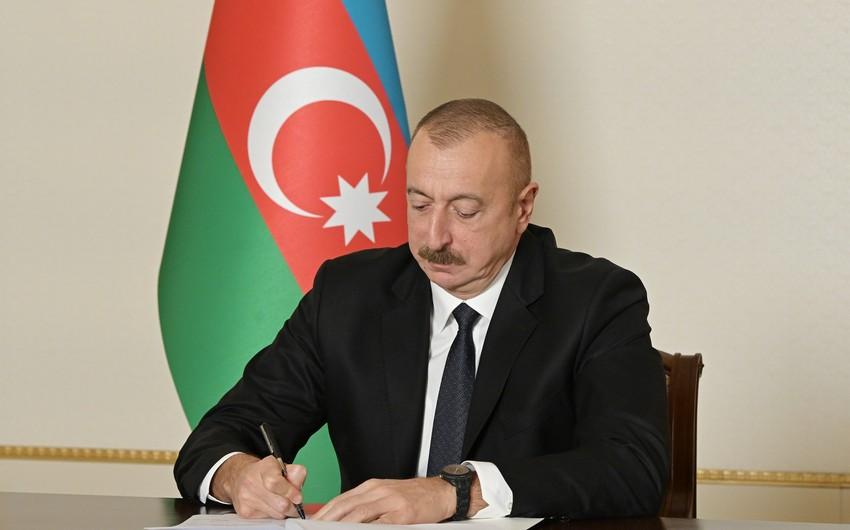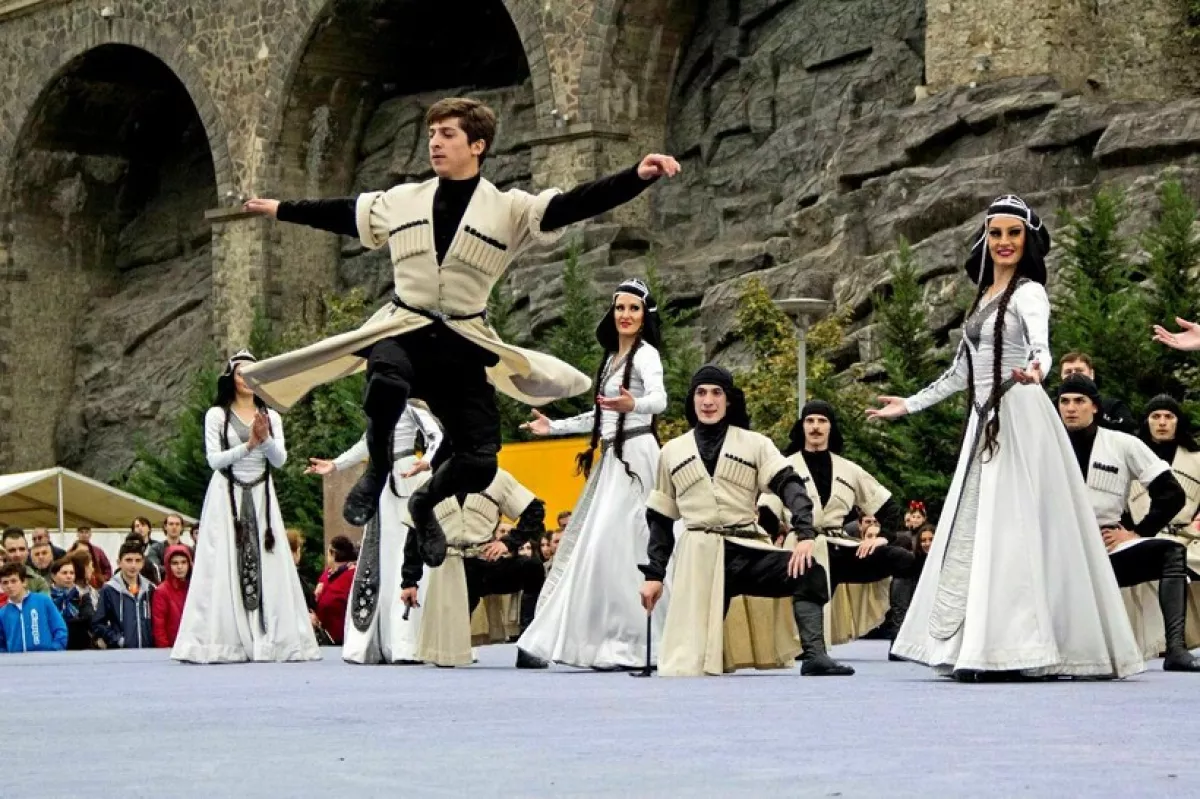Georgia's citizens opt for stability instead of "second front" Rejecting geopolitical games
The nationwide vote on October 26, 2024, demonstrated that the people of Georgia are choosing state sovereignty, independence, and traditional values. Georgian citizens voted for peace, rejecting the use of Georgia as an "expendable material" in geopolitical games by external forces. This vote was also a response to Western efforts, primarily by the EU, to impose what has never been part of Georgia's "values," including LGBT rights, the destruction of the family unit, and a disregard for faith and traditions.
As anticipated, immediately after the voting concluded on the evening of October 26, opposition-affiliated sociologists released their exit polls, which projected that opposition forces received more votes than the Georgian Dream. However, according to official data, Georgian Dream garnered about 53% of the vote (the final tally showed 53.92%). The opposition quickly claimed "falsifications." Yet, the planned protests and attempts at a forceful power grab by the pro-Western opposition began to falter.

Although Western observers began to echo the opposition's claims of "violations" during the voting process, the "signal" for the start of protests from Brussels, Washington, and Paris was noticeably delayed. High-ranking officials in the West did not immediately issue statements about "democracy violations" in Georgia right after the election results were announced. There was also no formation of the previously promised "technical government" by Salome Zourabichvili immediately following the voting. Interestingly, Zourabichvili herself did not address the public on October 26 as the opposition had anticipated; her speech was only promised for the evening of October 27. It wasn't until after 9 PM on October 27 that the President of Georgia, Salome Zourabichvili, made her address, declaring that the parliamentary elections had been "totally falsified," stating that she "does not recognize" them and announced a rally on Rustaveli Avenue for October 28 at 7 PM.
Most likely, the Western curators of the opposition, upon receiving the election results and not anticipating such a significant lead for Georgian Dream over its opponents, instructed a "slowdown" of the protests' initiation. This led to the predictable outcome of disappointment among those who were already prepared to "take to the streets and protest." In the techniques of escalating mass protests, any "delay" results in a cooling of tensions, making it difficult to reignite the fervour.
While the West, which had planned for destabilization, hesitated to support its allies in Tbilisi, Azerbaijan, as Georgia's closest neighbour interested in its stability, peace, and prosperity, signalled its support for the choice of the Georgian people. Almost immediately after the official announcement of the first election results, Azerbaijani President Ilham Aliyev congratulated Georgian Prime Minister Irakli Kobakhidze on the Georgian Dream's victory in the parliamentary elections and extended an invitation to visit Azerbaijan.
“Georgian citizens expressed their support for the development, stability and traditional values through this vote. I believe that the results of the elections will serve the overall development and prosperity of Georgia.
At the same time, I express my belief that the results of the elections will contribute to the continuous development of Azerbaijan-Georgia relations, which stem from the will of our peoples who have historically lived in a spirit of friendship, brotherhood and good neighbourliness, and further enhancement of the authority of our countries in the South Caucasus and the wider region.
I would like to invite you to pay an official visit to Azerbaijan at a time convenient for you to continue our political dialogue.
I am confident that we will continue to make joint efforts to strengthen our strategic partnership and successfully continue our mutually beneficial interaction on a bilateral and multilateral basis for the welfare of our countries and peoples, and for the prosperity and security of our region. I convey my best wishes to you, and wish everlasting peace and prosperity to the friendly people of Georgia,” reads the letter from the President of Azerbaijan.

It is quite possible that the convincing victory of the Georgian Dream forced Western forces, which were preparing a "colour revolution" scenario in Georgia, to retreat from their initial plans. It became clear that the majority of the Georgian population supports the current government, and Georgia's closest neighbour and key economic partner, Azerbaijan, clearly signalled that it considers the ruling political force's victory legitimate and lawful. As a result, the OSCE, with reservations, effectively recognized the election outcomes, and European Council President Charles Michel responded to the elections in Georgia only a day after the voting concluded:
“Following the parliamentary elections in Georgia, I intend to put Georgia on the agenda of the informal EUCO in Budapest. We note the OSCE/ODIHR preliminary assessment and call on the Central Election Commission and other relevant authorities to fulfil their duty to swiftly, transparently and independently investigate and adjudicate electoral irregularities and allegations thereof. These alleged irregularities must be seriously clarified and addressed. We reiterate the EU’s call to the Georgian leadership to demonstrate its firm commitment to the country’s EU path, also in line with EUCO June and October conclusions. Constructive and inclusive dialogue across the political spectrum is now paramount. The November EUCO will assess the situation and set the next steps in our relations with Georgia.”
This suggests that Western pressure, particularly from the EU, on Georgia will continue, but attempts at a forceful change of government may be put on hold for now. What Charles Michel wrote can be interpreted as a "preliminary recognition by the European Union of the election results in Georgia, with reservations."
It is also interesting to analyze how citizens belonging to ethnic minorities in Georgia voted. Georgian Dream achieved a convincing victory in the municipalities of Bolnisi (81%), Marneuli (80%), and Dmanisi (75%), where the majority of the population consists of ethnic Azerbaijanis. A similarly high percentage of votes for the Georgian Dream was recorded in the predominantly Armenian municipalities of Akhalkalaki and Ninotsminda, around 88%. These voting results indicate that the positioning of the Georgian Dream as a party of peace resonated with both Azerbaijanis and Armenians in Georgia.
It would be beneficial for some politicians in Yerevan, who were disappointed by the election outcomes in Georgia, to recognize the importance of peace in the South Caucasus region. This was evident from posts on information resources close to the current authorities of the Republic of Armenia. Nevertheless, Nikol Pashinyan, realizing that the pro-Western "revolution" in Georgia was faltering, sent his congratulations to Irakli Kobakhidze shortly after Ilham Aliyev did.
As for the regions with predominantly Georgian populations, the highest percentage of votes for "Georgian Dream" was in the municipality of Sachkhere, the hometown of Bidzina Ivanishvili, where 84% supported the party. Support for the ruling party was also strong in the mountainous regions of Svaneti, with 75% in Lentekhi and 73% in Mestia, as well as in the Kazbegi municipality, where 72% voted for "Georgian Dream." This suggests that the party received significant backing from the "deep" population of Georgia. It’s difficult to find more "traditional" Georgians than the residents of mountain villages and settlements, who generally hold their traditions and religion in high regard.

In contrast, among the affluent residents of Tbilisi who love to travel abroad, particularly the "golden youth," support for the Georgian Dream was relatively low. In the upscale Tbilisi neighbourhood of Vake, only 38% voted for the party, although this was still more than for any of the opposition forces.
The lowest level of support for Georgian Dream came from Georgians living abroad, with only 13% backing the party. At polling stations in Munich, just 4.4% voted for Georgian Dream; in The Hague, it was 7.7%; in Prague, 8%; in Vienna, 10.5%; and in Barcelona, 11%.
In other words, Georgian citizens who have "settled" in affluent European cities and are increasingly integrating into European society tend to harbour an open disfavour for the Georgian Dream as a political force advocating for their country's state sovereignty. However, many of these individuals have no plans to return to Georgia; they have "chosen Europe for themselves" and are quick to obtain local citizenship at the first opportunity. As a result, they are becoming increasingly distanced from the majority of the Georgian population, including its aspirations and values.
Conversely, those who live and work in Georgia and have no intention of leaving their homeland voted for the party that, amid a complex geopolitical landscape, provides peace and stable economic development, defends national sovereignty, and upholds what is dear to the people of Georgia—family, faith, and traditions.
Vladimir Tskhvediani, Georgia, for Caliber.Az








